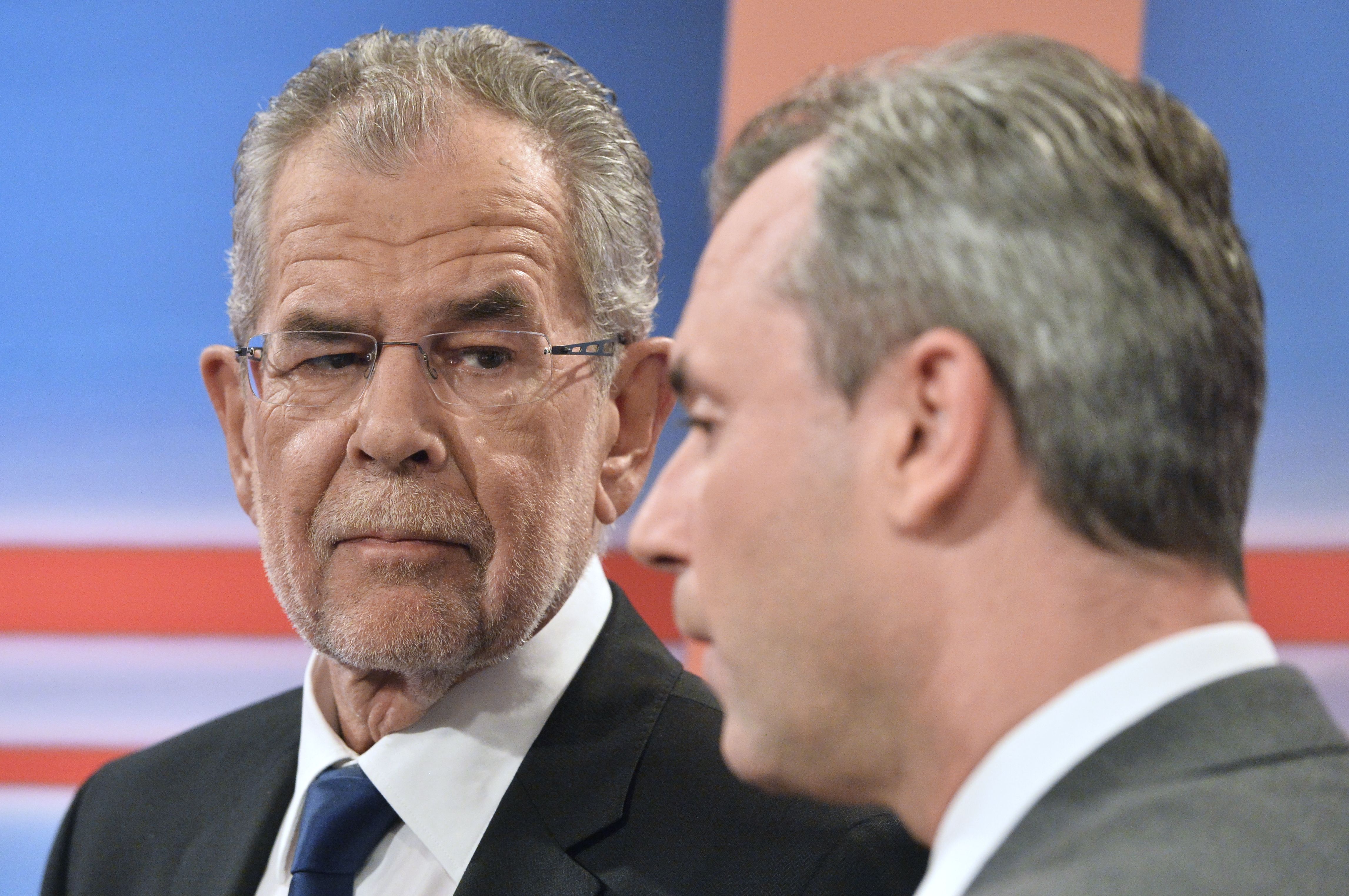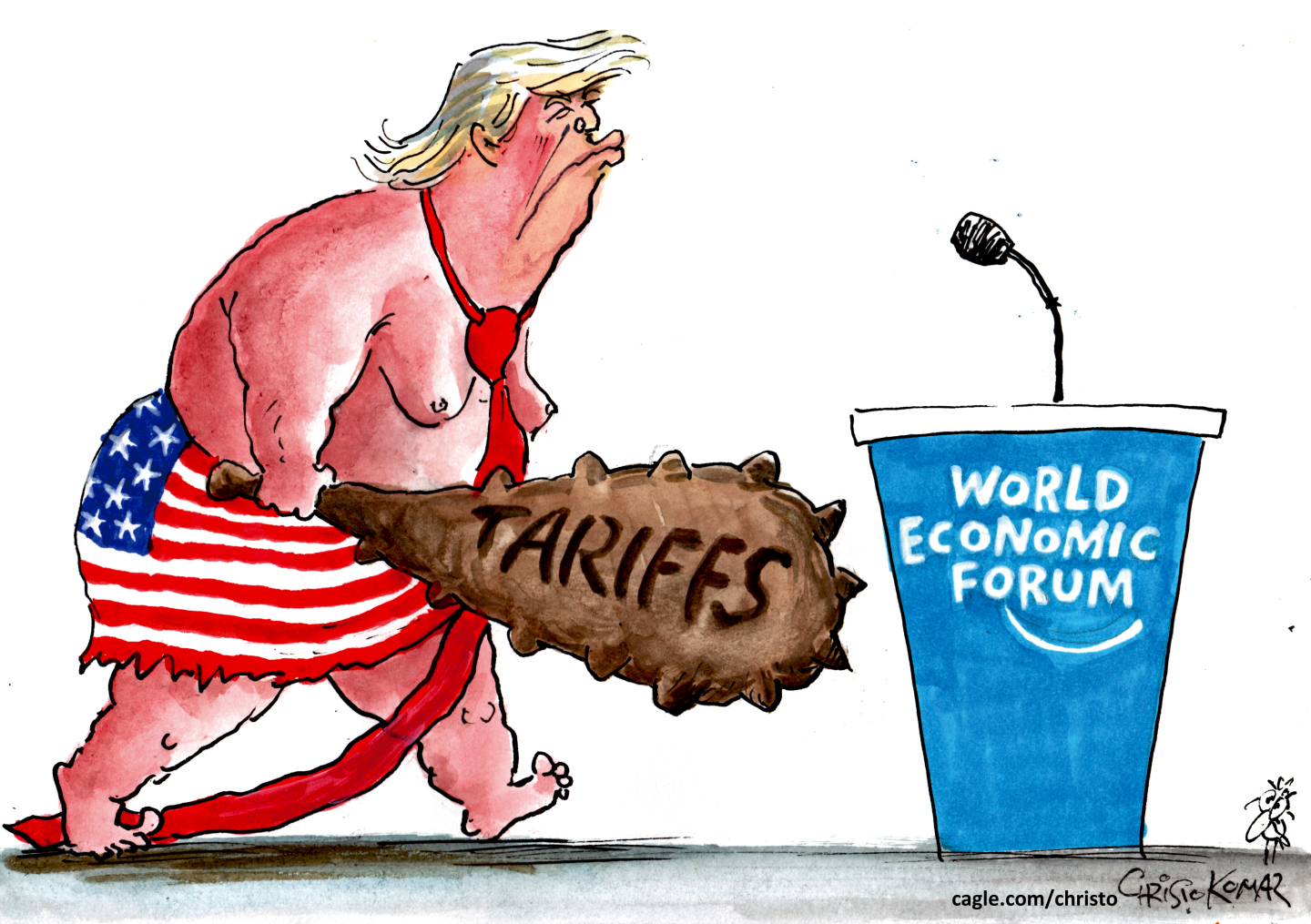5 lessons from Austria's near miss with the far right
The country's recent presidential election perfectly illuminated some of the biggest trends sweeping the West


Austria's presidential election was a game-changer. On Monday, Green Party-backed independent Alexander Van der Bellen defeated far-right candidate Norbert Hofer by only a few thousand votes. Not only was it the first time in Austria's post-war history where both of the main parties that have historically run the country were shut out of the runoff, but, most crucially, it was also the first time in Europe that a far-right candidate got very nearly 50 percent of the vote in a national election.
The election won't mean much for Austria, at least directly. The office of president is largely ceremonial under Austria's Constitution. But it highlights at least five trends that are sweeping Europe and, indeed, the Western world at large. Here they are:
1. The break-up of old political coalitions. The genius of the two-party system, at least most times, is that it gives extremes a voice while moderating them. The biggest mistake of France's political elites in the past 30 years was to cordon off the Front National from participating in politics, which only empowered it while making it coarser. The center isn't holding. Neither of Austria's major parties could make it to the runoff. We also see this in the rise of parties like Syriza in Greece and Podemos in Spain. Britain's Labour Party got wiped out in Scotland, its heartland, by the Scottish National Party. Hofer is a populist, but Van der Bellen doesn't even belong to a political party — they were both anti-establishment candidates.
The Week
Escape your echo chamber. Get the facts behind the news, plus analysis from multiple perspectives.

Sign up for The Week's Free Newsletters
From our morning news briefing to a weekly Good News Newsletter, get the best of The Week delivered directly to your inbox.
From our morning news briefing to a weekly Good News Newsletter, get the best of The Week delivered directly to your inbox.
2. Immigration is a big deal. The far right was always strong in Austria, but what prompted such a surge? You know very well the answer. Millions of migrants from the Middle East are streaming through Europe, and since Austria is close to the Balkans, many of them come through Austria. Immigration is a very, very salient political issue. It sounds silly when you put it that way but I, at least, underestimated its force until the double-whammy of Trump and Hofer. As my colleague Michael Brendan Dougherty aptly explained, immigration might be the defining issue of the 21st century.
3. Elites still have a say. The center cannot hold, and yet it still holds. Greece reelected Syriza — but only after they pledged to keep the euro, even though leaving the euro was the point of electing them in the first place. Scotland voted in the Scottish National Party, but still voted against independence. For all the ways the current climate is eerily reminiscent of the 1930s, one thing is different: Institutions are doing relatively well, all things considered. Austria voted overwhelmingly for a populist candidate, but it didn't succumb to a fascist dictatorship. The 2008 recession was pretty bad, but it wasn't 10 years of 25 percent unemployment. If anything was going to break apart the European Union, the euro crisis should have, but, for better or worse, it seems to have ridden out the storm.
4. Cities versus the countryside. In Austria, the divide was striking: Cities went big for Van der Bellen, and the countryside went big for Hofer. We see this also in America, where Sarah Palin contrasted mostly rural "real America" with coastal cities. People are increasingly lining up by lifestyle and values rather than income. Witness Trump's voters, who aren't just working class by income, but values. This in part reflects how much geography influences the buying power of any given wage. But it's also true that someone who never went to college, served in the military, lives in a semi-rural suburb, and owns a successful business in landscaping, construction, or another trade might have a high income, but still have values and a lifestyle much closer to the guy at the factory than to a lawyer or a doctor with similar income.
5. The backlash against the winner-take-all reality of globalization. Lifestyle is one reason for the rural/urban breakdown. Another reason is that cities are the big winners of globalization, while the countryside is where those who are left behind get, well, left behind.
A free daily email with the biggest news stories of the day – and the best features from TheWeek.com
For the enlightened city-dwelling Van der Bellen voters, a globalized workforce means not only a cheap workforce and pleasant multicultural restaurants (though having been to Vienna, I certainly don't blame them for looking for culinary alternatives to Austrian cuisine), but also fidelity to their cosmopolitan worldview about the essential disgrace of borders. For countryside Hofer voters, immigrants don't just mean economic competition in an uncertain environment, or just "dark-skinned" people, but also a threat to their lifestyle, culture, and heritage, which they know city-dwelling Van der Bellen voters regard with some variation of benign contempt or active hostility.
All of these trends together create a brave new world of haves and have-nots divided along economic, social, and cultural lines. They increasingly no longer consider each other countrymen and resent, fear, and hate the other side.
Happy 21st century!
Pascal-Emmanuel Gobry is a writer and fellow at the Ethics and Public Policy Center. His writing has appeared at Forbes, The Atlantic, First Things, Commentary Magazine, The Daily Beast, The Federalist, Quartz, and other places. He lives in Paris with his beloved wife and daughter.
-
 Ryanair/SpaceX: could Musk really buy the airline?
Ryanair/SpaceX: could Musk really buy the airline?Talking Point Irish budget carrier has become embroiled in unlikely feud with the world’s wealthiest man
-
 Claudette Colvin: teenage activist who paved the way for Rosa Parks
Claudette Colvin: teenage activist who paved the way for Rosa ParksIn The Spotlight Inspired by the example of 19th century abolitionists, 15-year-old Colvin refused to give up her seat on an Alabama bus
-
 5 contentious cartoons about Donald Trump at Davos
5 contentious cartoons about Donald Trump at DavosCartoons Artists take on weaponized tariffs, a cheeky offering, and more
-
 Panama and Canada are negotiating over a crucial copper mine
Panama and Canada are negotiating over a crucial copper mineIn the Spotlight Panama is set to make a final decision on the mine this summer
-
 Why Greenland’s natural resources are nearly impossible to mine
Why Greenland’s natural resources are nearly impossible to mineThe Explainer The country’s natural landscape makes the task extremely difficult
-
 Iran cuts internet as protests escalate
Iran cuts internet as protests escalateSpeed Reada Government buildings across the country have been set on fire
-
 US nabs ‘shadow’ tanker claimed by Russia
US nabs ‘shadow’ tanker claimed by RussiaSpeed Read The ship was one of two vessels seized by the US military
-
 How Bulgaria’s government fell amid mass protests
How Bulgaria’s government fell amid mass protestsThe Explainer The country’s prime minister resigned as part of the fallout
-
 Femicide: Italy’s newest crime
Femicide: Italy’s newest crimeThe Explainer Landmark law to criminalise murder of a woman as an ‘act of hatred’ or ‘subjugation’ but critics say Italy is still deeply patriarchal
-
 Brazil’s Bolsonaro behind bars after appeals run out
Brazil’s Bolsonaro behind bars after appeals run outSpeed Read He will serve 27 years in prison
-
 Americans traveling abroad face renewed criticism in the Trump era
Americans traveling abroad face renewed criticism in the Trump eraThe Explainer Some of Trump’s behavior has Americans being questioned
